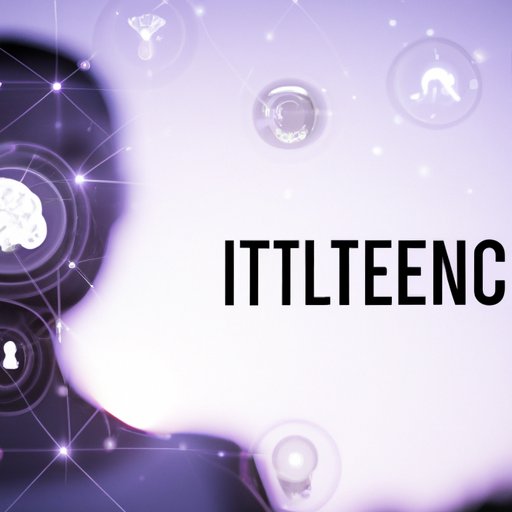Introduction
Artificial Intelligence (AI) is a branch of computer science that deals with the development of intelligent machines that can think and act like humans. AI technology has been around since the 1950s, but recent advancements in machine learning and deep learning algorithms have enabled AI to become increasingly powerful and prevalent in our lives. This article will explore the advantages and disadvantages of AI and its impact on our lives.
Benefits of AI
AI has the potential to bring many benefits to society. Here are some of the most significant advantages of AI:
Increased Efficiency
One of the primary advantages of AI is its ability to improve efficiency. AI-powered machines are able to automate mundane tasks and processes, freeing up time for more complex, value-adding activities. AI can also be used to optimize existing processes, leading to improved performance and reduced costs.
Reduced Cost
AI systems are generally less expensive than their human counterparts, as they require less labor and resources. By automating processes and eliminating manual labor, companies can save money and increase their profits. Additionally, AI systems can often be scaled up or down depending on the needs of the business, further reducing costs.
Improved Decision Making
AI systems are able to analyze large amounts of data quickly and accurately, enabling them to make informed decisions faster than humans. By leveraging AI technology, businesses can make better decisions about things like pricing, marketing, and product development, resulting in improved outcomes.
Risks of AI
While AI has many potential benefits, it also carries certain risks. Here are some of the potential risks associated with AI:
Unintended Consequences
AI systems are only as good as the data they’re given, and if the data is biased or incomplete, the results may not be accurate. Additionally, AI systems can learn from their mistakes, which means that any errors or biases in the system could become amplified over time. This could lead to unintended consequences, such as discrimination or other negative outcomes.
Loss of Human Jobs
As AI systems become more advanced, they will increasingly replace human workers in many industries. This could lead to widespread job losses, particularly in low-skill positions, leaving many people unable to find work. This could have a devastating effect on individuals, families, and entire economies.
Data Security Issues
AI systems rely on large amounts of data, and this data must be kept secure. If the data is compromised, it could lead to serious privacy and security concerns. Additionally, hackers could use AI systems to launch cyberattacks or manipulate data for malicious purposes.
Impact of AI on Our Lives
AI is rapidly becoming an integral part of our lives, and its impact is far-reaching. Here are some of the ways that AI is affecting our lives:
Automation
AI-powered robots and machines are increasingly being used to automate everyday tasks, such as driving cars, cleaning houses, and even delivering packages. Automation is expected to continue to grow in the coming years, further reducing the need for human labor.
Surveillance
AI systems are also being used for surveillance purposes, such as facial recognition and tracking people’s movements. This technology has raised serious concerns about privacy and the potential for abuse by governments and corporations.
Privacy Concerns
As AI systems become more sophisticated, they are gathering increasing amounts of data about people’s lives, raising serious questions about privacy and data protection. Companies must ensure that they are taking steps to protect users’ data and maintain transparency about how their data is being used.
Conclusion
AI has the potential to bring many benefits to society, such as increased efficiency, reduced costs, and improved decision making. However, there are also risks associated with AI, such as unintended consequences, job losses, and data security issues. The impact of AI on our lives is already being felt in areas such as automation, surveillance, and privacy, and this impact is likely to increase in the future. Ultimately, it is important to recognize both the potential benefits and risks of AI in order to ensure that it is used responsibly and ethically.
(Note: Is this article not meeting your expectations? Do you have knowledge or insights to share? Unlock new opportunities and expand your reach by joining our authors team. Click Registration to join us and share your expertise with our readers.)
